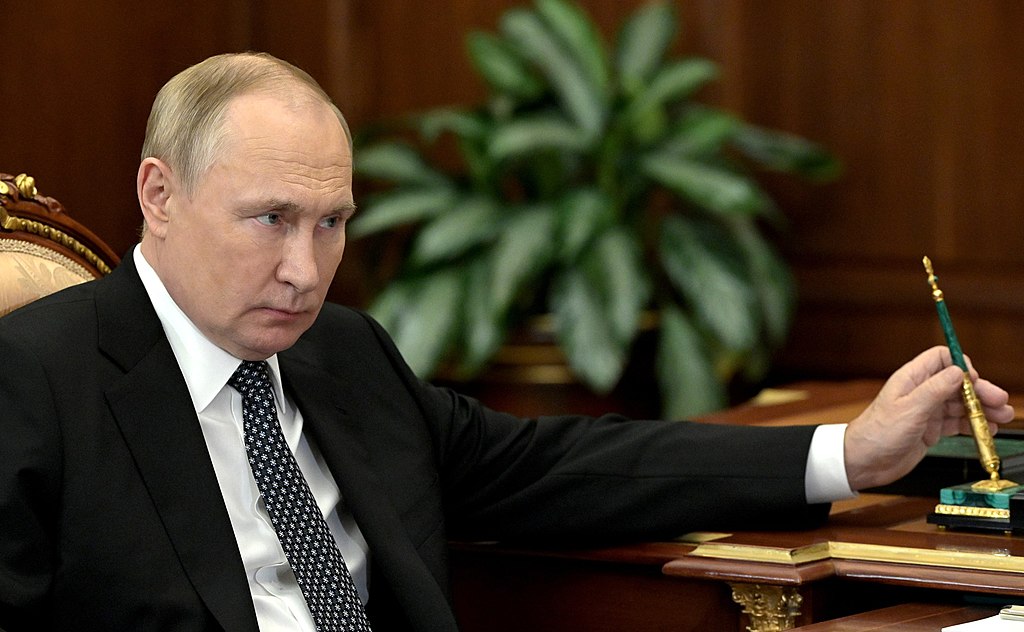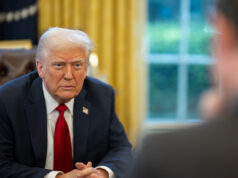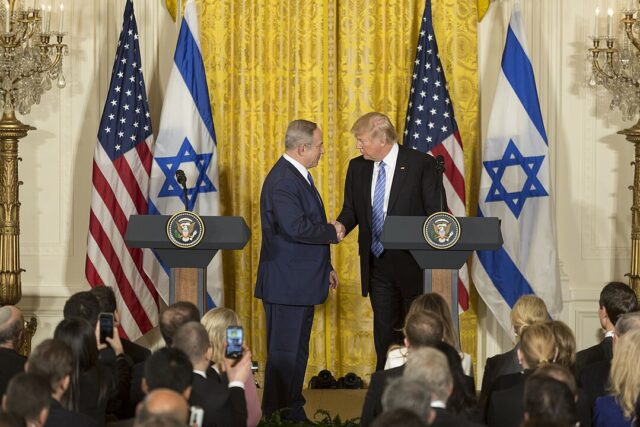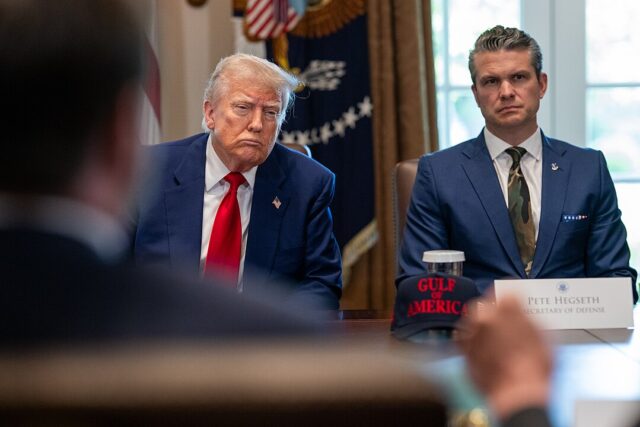The Trump administration is being praised for its efforts in securing a landmark peace deal between Israel and Hamas that will see all remaining hostages brought home on Monday.
Under the first phase of the agreement, Israel will release hundreds of Palestinian prisoners in exchange for all remaining hostages, both living and dead. Israel will also withdraw its troops from most of Gaza, removing themselves behind a “yellow line” during a 24-hour ceasefire that has already begun.
At the end of the ceasefire, a 72-hour clock will begin, during which Hamas must release all remaining hostages. Only 20 remaining hostages are believed to be alive, along with the 28 who are deceased and their bodies “scattered across Gaza” according to negotiators.
Fox News noted it remains unclear if Hamas will be able to adhere to this timeframe after it flagged over the weekend the improbability that it will be able to quickly locate all deceased bodies, some of which are allegedly buried under rubble.
Jerusalem will also authorize the release of some 1,700 Gazans arrested after the October 2023 attacks, along with roughly 250 Palestinians serving life sentences, under the first phase of the plan presented by President Donald Trump late last month.
President Donald Trump announced the deal on Wednesday night, hailing assistance from Qatar, Egypt and Turkey.
Israeli Prime Minister Benjamin Netanyahu Shosh Bedrosian said this is only the first phase of the peace agreement. Details of later phases have not been announced.
Secretary of State Marco Rubio handed President Donald Trump a note on Wednesday telling him that a Middle East peace deal was “very close” and was awaiting Trump’s approval for “a Truth Social post.”
As Trump spoke to reporters, Rubio walked up to the president, whispered in his ear, and handed him a note
“Very close. We need you to approve a Truth Social post soon so you can announce deal first,” the note read.
Watch the moment:
After being handed the note, Trump told reporters, “I was just given a note by the Secretary of State saying that we’re very close to a deal in the Middle East and they’re gonna need me pretty quickly.”
Just over an hour later, Trump published a Truth Social post announcing “that Israel and Hamas have both signed off on the first Phase of our Peace Plan.”
“This means that ALL of the Hostages will be released very soon, and Israel will withdraw their Troops to an agreed upon line as the first steps toward a Strong, Durable, and Everlasting Peace. All Parties will be treated fairly!” he wrote. “This is a GREAT Day for the Arab and Muslim World, Israel, all surrounding Nations, and the United States of America, and we thank the mediators from Qatar, Egypt, and Turkey, who worked with us to make this Historic and Unprecedented Event happen. BLESSED ARE THE PEACEMAKERS!”
Earlier on Wednesday, White House Press Secretary Karoline Leavitt announced that Trump was “considering going to the Middle East shortly” after his routine, annual medical checkup at Walter Reed Medical Center.
“I may go there sometime toward the end of the week, maybe on Sunday, actually, and we’ll see,” Trump told reporters. “But there’s a very good chance. Negotiations are going along very well. We’re dealing with Hamas and many of the countries. As you know, we have a Muslim, all of the Muslim countries are included. All of the Arab countries are included. Very rich countries and some that are not so rich, but just about everybody is included.”
Families of Israeli hostages erupted in cheers after President Donald Trump called to tell them their loved ones would return home in days after what he described as a “historic peace deal” between Israel and Hamas.
In a video released by the Hostage and Missing Families Forum, the president spoke to relatives by phone late Wednesday, promising all captives would be back by Monday.
The clip shows Secretary of Commerce Howard Lutnick on a call with Trump and standing with hostage families before they chant: “Thank you!”
“This is amazing,” one said. Another added, “Mr. President, we believe in you, we know you’ve done so much for us in the past, since you became president, even before that. And we trust you’ll fulfill the mission until every hostage, until all 48 of the hostages are home. Thank you so much. Blessed be the peacemakers!”
Watch:
Israeli Foreign Minister Gideon Sa’ar offered new details on Israel’s peace agreement with Hamas in an interview with Fox News’ Jennifer Griffin on Thursday.
Griffin pressed Sa’ar about Hamas’ role in Gaza moving forward as well as Israel’s plans for a military withdrawal.
Sa’ar said Israel is already moving to withdraw its troops behind the “yellow line,” ceding 53% of Gaza’s territory amid Thursday’s ceasefire. He said further withdrawals will be negotiated in later phases of the peace agreement.
He went on to say that, in the meantime, Gaza will be governed by a council of local Palestinians along with input from President Donald Trump. He said the existing Palestinian Authority may also play a role, but only if it adopts certain reforms.
Israeli Prime Minister Benjamin Netanyahu called for Trump to receive the Nobel Peace Prize for his efforts in the peace deal.













